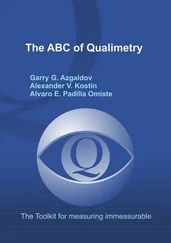CHAPTER THIRTEEN. HOW WE WORRY
I AM GOING NOW,” said Mr. J.L.B. Matekoni, standing at the kitchen door the following morning. “It's a Lobatse day.”
“Of course,” said Mma Ramotswe. She had forgotten, but was now reminded, that this was one of the days when Mr. J.L.B. Matekoni went to help a friend who owned a garage in Lobatse. This friend, who had recently bought the business, was struggling to cope after an employee's premature retirement. Mr. J.L.B. Matekoni had stepped into the breach, offering to spend a day every two weeks-taking Charlie with him-helping to get through the backlog of work. It was typical of him, thought Mma Ramotswe fondly, that he should come to the rescue in this way. But inevitably there was more work than he and Charlie could manage, and the Lobatse days were long ones.
“I'll try to be back in time for my dinner,” said Mr. J.L.B. Matekoni. “But you know how it is.”
Mma Ramotswe did know. He would not be back until ten that night, perhaps even later, and she would worry about him until she saw the lights of his truck at the front gate. That journey could be perilous at night, what with bad drivers and with animals straying onto the road. She knew of so many people who had collided with cattle at night; one moment the road was clear and then, with very little or no warning at all, a cow or a donkey would nonchalantly wander out in front of the car. But you could worry too much about these things, thought Mma Ramotswe, and she knew that worrying about things was no help at all. Of course you were concerned for those you loved; it would be impossible not to be so. She worried about Motholeli; about the sort of future that lay ahead for a girl in a wheelchair. It helped if such a girl was as plucky as Motholeli, but would pluck be enough to get her through the disappointments that must surely lie ahead? What if she wanted to marry and have a family? Would there be a young man ready to take on the responsibility of a handicapped wife? And Mma Ramotswe was not even sure whether it would be possible for Motholeli to have a child, even if there was a husband to hand. She had not really given it much thought, but the time would come when she would have to do so.
And Puso, what about him? He was a strange boy-a little bit distant, which was to be expected, perhaps, from a child who had had such a difficult start in life. She felt now that they were getting through to him, but sometimes she wondered how he would turn out. Had he been the natural son of Mr. J.L.B. Matekoni, then she might have said that Mr. J.L.B. Matekoni's gentle breeding would come through; but he was not, he was the son of a man whom they would never know anything about.
Such doubts were only to be expected, and it would be strange if foster parents never thought of these things. Yet there was no point in allowing niggling doubts to flower into consuming worries. The important thing was to get on with life and to give the children the love they deserved. She did that, and she knew that in their hearts they loved her back.
As she watched Mr. J.L.B. Matekoni walk out to his truck that morning, Mma Ramotswe felt herself overcome by a sudden feeling of vulnerability, by a fear that her familiar world was hanging by a thread. We were tiny creatures, really; tiny and afraid, trying to hold our place on the little platform that was our earth. So while the world about us might seem so solid, so permanent, it was not really. We were all at the mercy of chance, no matter how confident we felt, hostages to our own human frailty. And that applied not only to people, but to countries too. Things could go wrong and entire nations could be led into a world of living nightmare; it had happened, and was happening still. Poor Africa; it did not deserve the things that had been done to it. Africa, which could stand for love and happiness and joy, could also be a place of suffering and shame. But that suffering was not the only story, thought Mma Ramotswe. There was a story of courage and determination and goodness that could be told as well, and she was proud that her country, her Botswana, had been part of that.
Before getting into the truck Mr. J.L.B. Matekoni turned and waved. She waved back from the window and suddenly, inexplicably, felt an urge to rush out into the yard to speak to him before he left, to tell him something. She stood quite still; the urge was a strong one, but there was a part of her that said that she should not be silly, that she should stay where she was. She was holding a kitchen towel in her hand and found herself twisting it in her anxiety. Now she flung it aside and made for the door.
He had started his truck and was reversing down the driveway. When she appeared round the side of the house, he spotted her and waved again, thinking that she was on her way out to the garden. But then he saw that she was waving to him as if she had forgotten to tell him something, some message, no doubt, about picking up something from the shops in Lobatse before he came home. There was a butcher there who was a distant relation of Obed Ramotswe and gave them good cuts of meat at a special price. It would be about that, he thought.
Mr. J.L.B. Matekoni wound down his window. “Yes, Mma Ramotswe,” he said. “I'll go to the butcher. What do we need this time?”
She shook her head. He saw that she was looking at him intently, as if she were expecting a message or waiting for him to say something.
“What is it, Mma Ramotswe?”
She shook her head. “I don't know, Mr. J.L.B. Matekoni. I suppose I just wanted to say something to you. And now I don't really know what it is.”
He began to smile, and was on the point of chiding her for being forgetful, when he stopped. There was something in her demeanour that suggested concern; it was almost as if she were frightened; as if she wanted to be reassured by him. He reached out of the window and touched her arm gently, then took her hand in his, awkwardly, as his position inside the cab of the truck did not make it easy. “What is it, Mma Ramotswe? Is there anything wrong?”
She answered no, there was nothing wrong. Did he know how sometimes you felt horribly anxious; you felt that something was going to happen? He thought about that for a moment; yes, he understood that feeling, but nothing bad was going to happen. And then he asked her whether she was upset about her van. She shook her head to that.
“Then what is it?”
She gave his hand a squeeze. “I wanted to thank you,” she said.
He was puzzled. “For what? Thank me for what?”
“For everything that you've given me, Mr. J.L.B. Matekoni.”
He looked away. He was not one for displays of emotion; he never had been, but it made his heart swell to be thanked by this woman who stood for so much in his eyes; who stood for kindness and generosity and understanding; for a country of which he was so proud; who stood for Africa and all the love that Africa contained.
“I am the one who should say thank you, Mma Ramotswe,” he said. “You are the one who has given everything.”
She gave his hand a last, fond squeeze and then stood back. “I mustn't hold you up,” she said. “Lobatse.”
He sighed. “Yes, Lobatse.”
He put the truck into gear and she watched him drive out onto the road. In the background, she heard the neighbour's dogs start to bark at the sound of the truck's engine. Those dogs, she thought; they lay in wait for anything that passed, human or mechanical, ready to defend their tiny patch of territory against whatever incursion, as do we all.
IT HAD BEEN a very unsettling feeling, but she had largely recovered from it by the time she herself left the house half an hour later. The children had been dispatched to school, Puso pushing Motholeli's wheelchair for the short journey. He was old enough to do that now, and did it without complaint; it was lodged in his mind somewhere, thought Mma Ramotswe, that his sister had looked after him, had saved his life, in fact, when he was very small. He did not remember that, of course, but he had been told about it, and he knew.
Читать дальше











